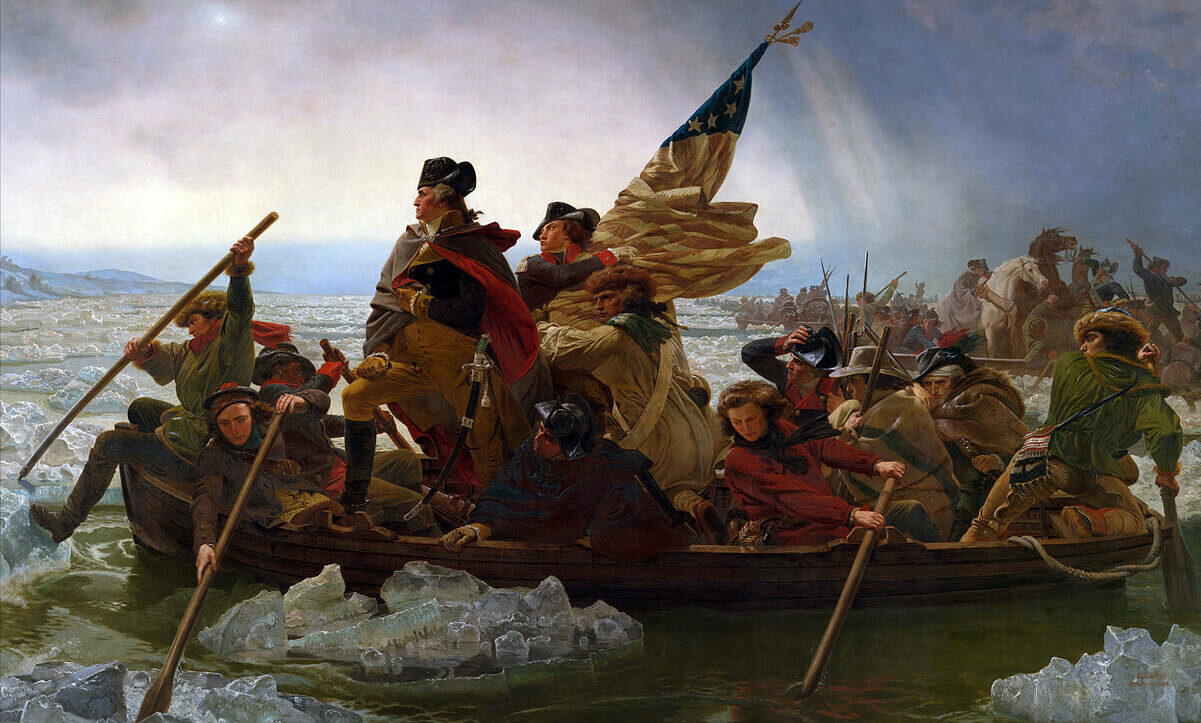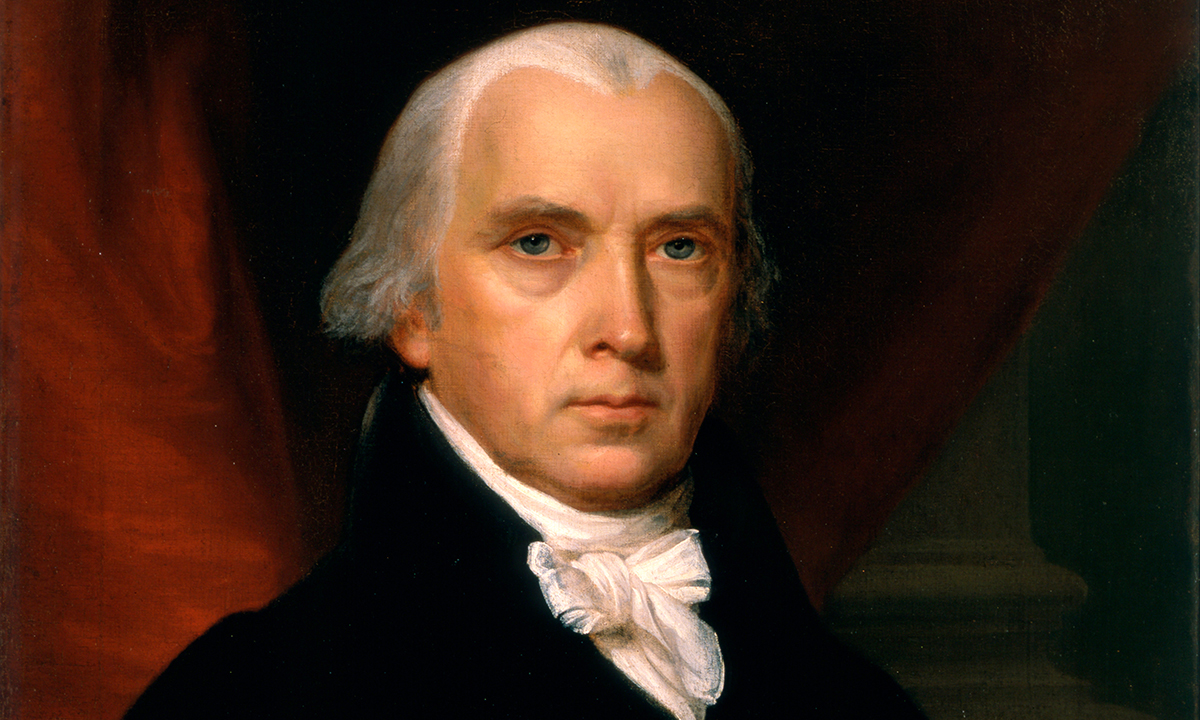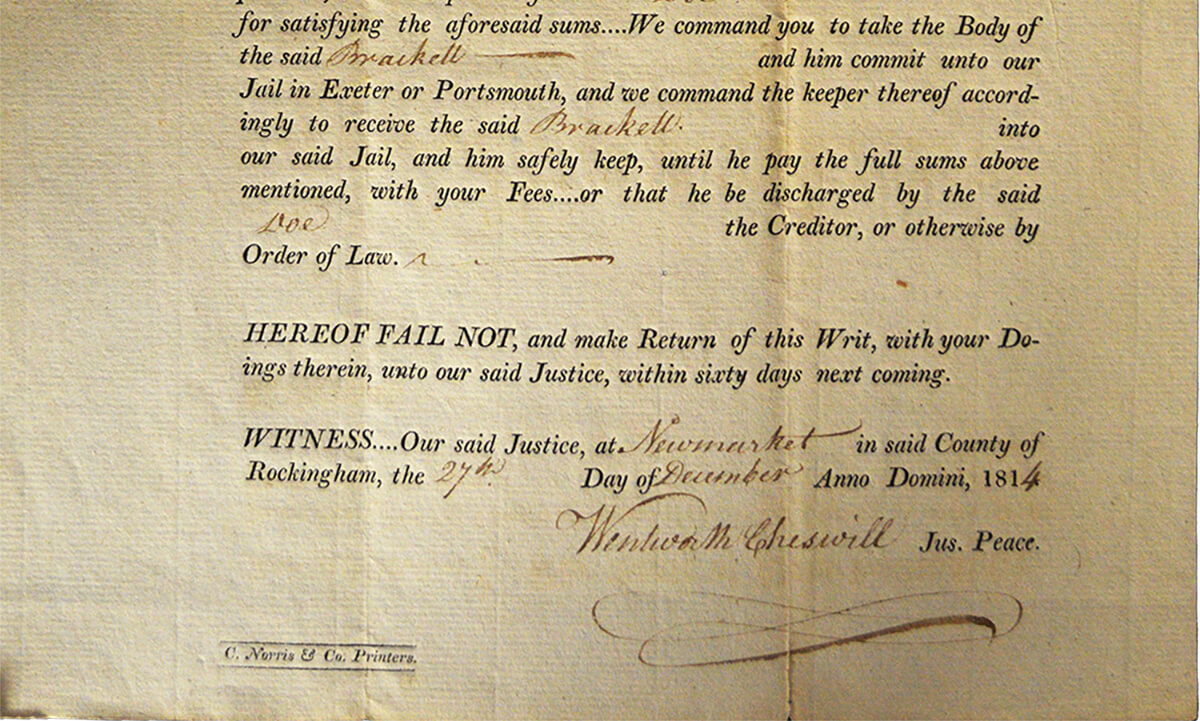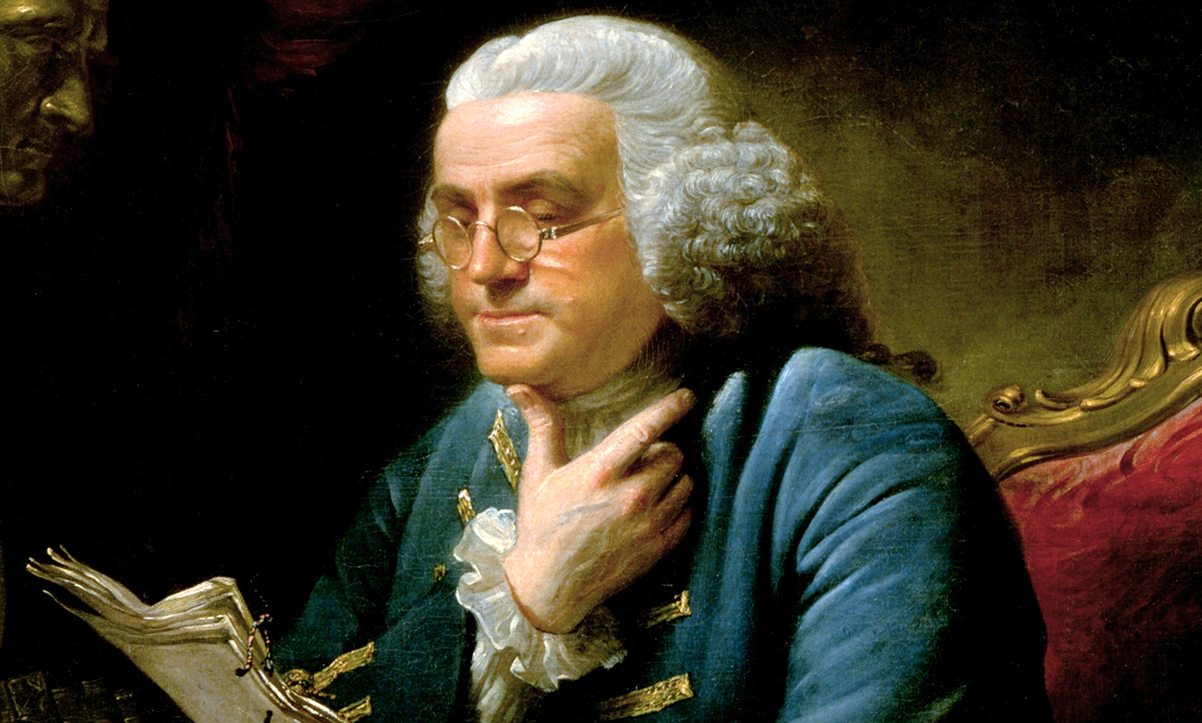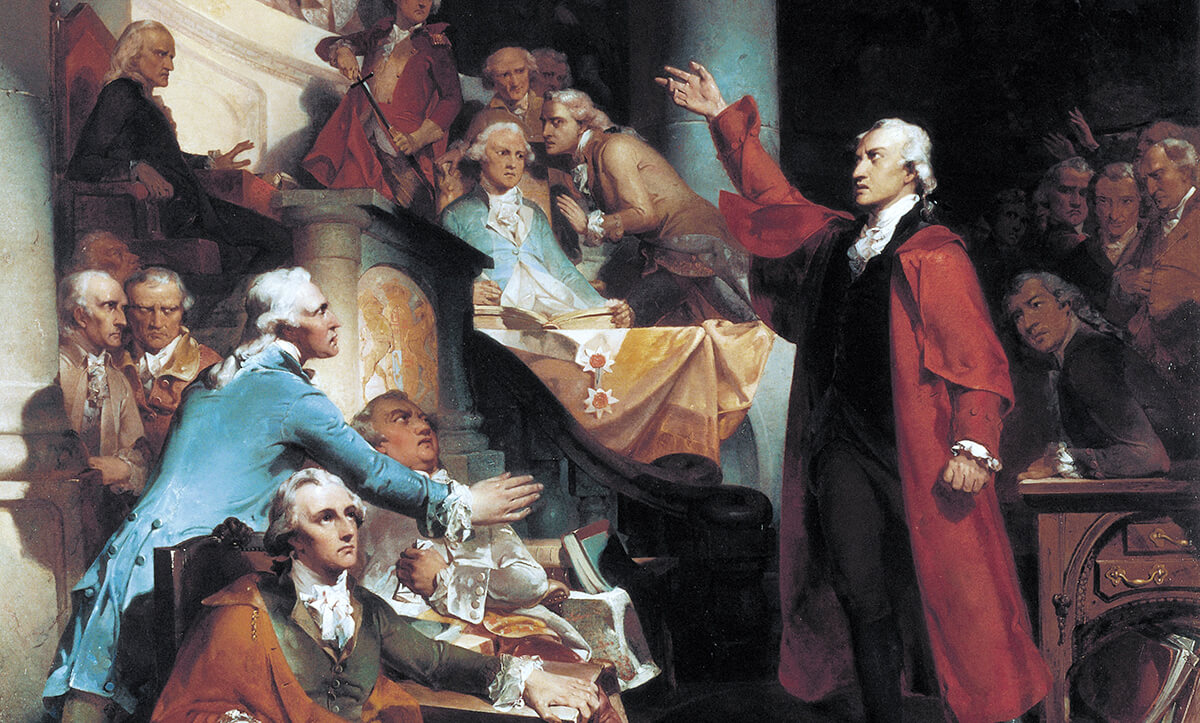In recent days, Michael Newdow – infamous for his successful initiation of the ruling striking down “under God” in the Pledge of Allegiance – has broadened his efforts and has filed suit against the use of chaplains in the U. S. House and Senate. In his public appearances defending this newest pursuit, Newdow cites James Madison’s quotes from his “Detached Memoranda” as his authority in opposing chaplains. Did Madison actually oppose chaplains in Congress? Yes, and no.
Madison’s religious views and activities are numerous, as are his writings on religion. They are at times self-contradictory, and his statements about religion are such that opposing positions can each invoke Madison as its authority. An understanding of Madison’s religious views is complicated by the fact that his early actions were at direct variance with his later opinions. Consider six examples of his early actions.
First, Madison was publicly outspoken about his personal Christian beliefs and convictions. For example, he encouraged his friend, William Bradford (who served as Attorney General under President Washington), to make sure of his own spiritual salvation:
[A] watchful eye must be kept on ourselves lest, while we are building ideal monuments of renown and bliss here, we neglect to have our names enrolled in the Annals of Heaven.1
Madison even desired that all public officials – including Bradford – would declare openly and publicly their Christian beliefs and testimony:
I have sometimes thought there could not be a stronger testimony in favor of religion or against temporal enjoyments, even the most rational and manly, than for men who occupy the most honorable and gainful departments and [who] are rising in reputation and wealth, publicly to declare their unsatisfactoriness by becoming fervent advocates in the cause of Christ; and I wish you may give in your evidence in this way.2
Second, Madison was a member of the committee that authored the 1776 Virginia Bill of Rights and approved of its clause declaring that:
It is the mutual duty of all to practice Christian forbearance, love, and charity toward each other3
Third, Madison’s proposed wording for the First Amendment demonstrates that he opposed only the establishment of a federal denomination, not public religious activities. His proposal declared:
The civil rights of none shall be abridged on account of religious belief or worship, nor shall any national religion be established. 4
(Madison reemphasized that position throughout the debates. 5 Fourth, in 1789, Madison served on the Congressional committee which authorized, approved, and selected paid Congressional chaplains. 6
Fifth, in 1812, President Madison signed a federal bill which economically aided a Bible Society in its goal of the mass distribution of the Bible. 7
Sixth, throughout his Presidency (1809-1816), Madison endorsed public and official religious expressions by issuing several proclamations for national days of prayer, fasting, and thanksgiving.8
These were the early actions of Madison. In later life Madison retreated from many of these positions, even declaring in his “Detached Memoranda” his belief that having paid chaplains and issuing presidential prayer proclamations were unconstitutional. Recent Courts have made a point of citing Madison’s “Detached Memoranda” in arguing against public religious expressions. 9
Significantly, the “Detached Memoranda” was “discovered” in 1946 in the papers of Madison biographer William Cabell Rives and was first published more than a century after Madison’s death by Elizabeth Fleet in the October 1946 William & Mary Quarterly. In that work, Madison expressed his opposition to many of his own earlier beliefs and practices and set forth a new set of beliefs formerly unknown even to his closest friends. Since Madison never made public or shared with his peers his sentiments found in the “Detached Memoranda,” and since his own public actions were at direct variance with this later writing, it is difficult to argue that it reflects the Founders’ intent toward religion.
There were fifty-five individuals directly involved in framing the Constitution at the Constitutional Convention, and an additional ninety in the first federal Congress that framed the First Amendment and Bill of Rights. Allowing for the overlap of nineteen individuals who were both at the Constitutional Convention and a part of the first Congress, 10 there were one hundred and twenty-six individual participants in the framing of the Constitution and the Bill of Rights. The records of the Constitutional Convention demonstrate that James Madison was often out of step with these Founders. The other delegates rejected Madison’s Virginia plan in preference for Roger Sherman’s Connecticut plan and voted down 40 of Madison’s 71 proposals (60 percent). 11 Nevertheless, today Madison is cited as if he is the only authority among the Founding Fathers and the only expert on the First Amendment and the Bill of Rights.
Was Madison responsible for the First Amendment and the Bill of Rights? Definitely not. In fact, during the Constitutional Convention, it was Virginian George Mason that advocated that a Bill of Rights be added to the Constitution, 12 but the other Virginians at the Convention – including James Madison – opposed any Bill of Rights and their position prevailed. 13Consequently, George Mason, Elbridge Gerry, Edmund Randolph, and others at the Convention refused to sign the new Constitution because of their fear of insufficiently bridled federal power. 14
Mason and the others returned to their home States to lobby against the ratification of the Constitution until a Bill of Rights was added. As a result of their voices (and numerous others who agreed with them), the ratification of the Constitution almost failed in Virginia, 15 Massachusetts, 16 New Hampshire, 17 and New York. 18 Rhode Island flatly refused to ratify it, 19 and North Carolina refused to do so until limitations were placed upon the federal government. 20 Although the Constitution was eventually ratified, a clear message had been delivered: there was strong sentiment demanding the inclusion of a Bill of Rights.
When the Constitution was considered for ratification, the reports from June 2 through June 25, 1788, make clear that in Virginia, Patrick Henry, George Mason, and Edmund Randolph led the fight for the Bill of Rights, again over James Madison’s opposition. 21 Henry’s passionate speeches of June 5 and June 7 resulted in Virginia’s motion that a Bill of Rights be added to the federal Constitution; and on June 25, the Virginia Convention selected George Mason to chair a committee to prepare a proposed Bill of Rights, 22 with Patrick Henry and John Randolph as members. 23 Mason incorporated Henry’s arguments as the basis of Virginia’s proposal on religious liberty. 24
Although Madison had opposed a Bill of Rights, he understood the grim political reality that without one, it was unlikely the new Constitution would receive widespread public acceptance. 25 Consequently, he withdrew his opposition, and in the federal House of Representatives he introduced his own versions of the amendments offered by his State.
Very little of Madison’s proposed religious wording made it into the final version of the First Amendment; and even a cursory examination of the Annals of Congress surrounding the formation of that Amendment quickly reveals the influence of Fisher Ames and Elbridge Gerry of Massachusetts, Samuel Livermore of New Hampshire, John Vining of Delaware, Daniel Carroll and Charles Carroll of Maryland, Benjamin Huntington, Roger Sherman, and Oliver Ellsworth of Connecticut, William Paterson of New Jersey, and others on that Amendment. 26
The failure to rely on Founders other than Madison seems to imply that no other Founders were qualified to address First Amendment issues or that there exists no pertinent recorded statements from the other Founders. Both implications are wrong: numerous Founders played pivotal roles; and thousands of their writings do exist.
However, if critics of public religious expression believe that only a Virginian may speak for the nation on the issue of religion (they usually cite either Madison or Jefferson), then why not George Mason, the “Father of the Bill of Rights”? Or Richard Henry Lee who not only framed Virginia’s proposals but who also was a Member of the first federal Congress where he helped frame the Bill of Rights? Or why not George Washington? Perhaps the reason that these other Virginians are ignored (as are most of the other Framers) is because both their words and actions unequivocally contradict the image portrayed by the one-sided picture of Madison given by those who cite only his “Detached Memoranda.”
George Washington provides a succinct illustration. During his inauguration, Washington took the oath as prescribed by the Constitution but added several religious components to that official ceremony. Before taking his oath of office, he summoned a Bible on which to take the oath, added the words “So help me God!” to the end of the oath, then leaned over and kissed the Bible. 27 His “Inaugural Address” was filled with numerous religious references, 28 and following that address, he and the Congress “proceeded to St. Paul’s Chapel, where Divine service was performed.” 29
Only weeks later, Washington signed his first major federal bill 30 – the Northwest Ordinance, drafted concurrently with the creation of the First Amendment. 31 That act stipulated that for a territory to become a State, the “schools and the means of education” in that territory must encourage the “religion, morality, and knowledge” that was “necessary to good government and the happiness of mankind.” 32 Conforming to this requirement, numerous subsequent State constitutions included that clause, 33 and it still appears in State constitutions today. 34 Furthermore, that law is listed in the current federal code, along with the Constitution, the Declaration, and the Articles of Confederation, as one of America’s four “organic” or foundational laws. 35
Finally, in his “Farewell Address,” Washington reminded the nation:
Of all the dispositions and habits which lead to political prosperity, religion and morality are indispensable supports. In vain would that man claim the tribute of patriotism, who should labor to subvert these great pillars of human happiness. . . . The mere politician, equally with the pious man, ought to respect and to cherish them. 36
Washington – indisputably a constitutional expert – declared that religion and morality were inseparable from government, and that no true patriot, whether politician or clergyman, would attempt to weaken the relationship between government and the influence of religion and morality.
Or why not cite the actions of the entire body of Founding Fathers? For example, in 1800, when Washington, D. C., became the national capital and the President moved into the White House and Congress into the Capitol, Congress approved the use of the Capitol building as a church building for Christian worship services. 37 In fact, Christian worship services on Sunday were also started at the Treasury Building and at the War Office. 38
John Quincy Adams, a U. S. Senator, made frequent references to these services. Typical of his almost weekly entries are these:
[R]eligious service is usually performed on Sundays at the Treasury office and at the Capitol. I went both forenoon and afternoon to the Treasury. October 23, 1803. 39
Attended public service at the Capitol, where Mr. Ratoon, an Episcopalian clergyman from Baltimore, preached a sermon. October 30, 1803. 40
The Rev. Mannasseh Cutler, a U. S. Congressman (as well as a chaplain in the Revolution and a physician and scientist) similarly recorded in 1804:
December 23, Sunday. Attended worship at the Treasury. Mr. [James] Laurie [pastor of the Presbyterian Church] alone [preached]. Sacrament [communion]. Full assembly. Three tables; service very solemn; nearly four hours. Cold day. 41
By 1867, the church in the Capitol had become the largest church in Washington, and the largest Protestant church in America. 42
There are numerous other public religious activities by the Founding Fathers that might be cited, and Madison participated and facilitated many of them. Yet Madison later privately renounced his own practices, thus distancing himself from his own beliefs and practices as well as those of the other Founders. Therefore, to use Madison’s “Detached Memoranda” as authoritative is a flagrant abuse of historical records, choosing a long unknown ex post facto document in preference to those concurrent with the framing and implementation of the First Amendment.
Newdow’s use of James Madison is typical of most revisionists: it gives only the part of the story with which he agrees and omits the part with which he disagrees. If Newdow wants to take the position that the “Founding Fathers” (plural) opposed the use of chaplains, then he must provide evidence from more than one Founder; he must show that the majority of the Founders opposed chaplains – something that he cannot do.
Endnotes
1 Letter of Madison to William Bradford (November 9, 1772), in 1 James Madison, The Letters and Other Writings of James Madison 5-6 (New York: R. Worthington 1884).
2 Letter of Madison to William Bradford (September 25, 1773), in 1 James Madison, The Papers of James Madison 66 (William T. Hutchinson ed., Illinois: University of Chicago Press 1962).
3 The Proceedings of the Convention of Delegates, Held at the Capitol in the City of Williamsburg, in the Colony of Virginia, on Monday the 6th of May, 1776, 103 (Williamsburg: Alexander Purdie 1776) (Madison on the Committee on May 16, 1776; the “Declaration of Rights” passed June 12, 1776).
4 The Debates and Proceedings in the Congress of the United States 451, 1st Cong., 1st Sess. (Washington, D. C.: Gales & Seaton 1834) (June 8, 1789).
5Debates and Proceedings 758-759 (1834 ed.) (August 15, 1789).
6 Debates and Proceedings 109 (1834 ed.) (April 9, 1789).
7 Debates and Proceedings in the Congress of the United States 1325, 12th Cong., 2nd Sess. (Washington: Gales & Seaton 1853) (“An Act for the relief of the Bible Society of Philadelphia. Be it enacted, &c., That the duties arising and due to the United States upon certain stereotype plates, imported during the last year into the port of Philadelphia, on board the ship Brilliant, by the Bible Society of Philadelphia, for the purpose of printing editions of the Holy Bible, be and the same are hereby remitted, on behalf of the United States, to the said society: and any bond or security given for the securing of the payment of the said duties shall be cancelled. Approved February 2, 1813.”)
8 James D. Richardson, A Compilation of the Messages and Papers of the Presidents, 1789-1897, 513 (Published by Authority of Congress 1899) (July 9, 1812), 532-533 (July 23, 1813), 558 (November 16, 1814), and 560-561 (March 4, 1815).
9 See, for example, Lee v. Weisman, 505 U.S. 577, 617 (1992); Marsh v. Chambers, 463 U.S. 783, 791 (1983); ACLU v. Capitol Square Review, 243 F.3d 289 (6th Cir. 2001); Sherman v. Cmty. Consol. Dist. 21, 980 F.2d 437 (7th Cir. 1992); American Jewish Congress v. City of Chicago, 827 F.2d 120 (7th Cir. 1787), and others.
10 Ten members of the Constitutional Convention also served in the first federal Senate (William Few, Richard Bassett, George Read, Pierce Butler, William Paterson, Robert Morris, Oliver Ellsworth, William Samuel Johnson, Caleb Strong, and John Langdon) and nine members of the Convention served in the first federal House (Abraham Baldwin, James Madison, Hugh Williamson, Daniel Carroll, George Clymer, Thomas Fitzsimons, Roger Sherman, Elbridge Gerry, and Nicholas Gilman).
11 Forrest McDonald, Novus Ordo Seclorum: The Intellectual Origins of the Constitution 208-209 (Lawrence, Kansas, 1985), compiled from The Records of the Federal Convention of 1787 (Max Farrand, ed., New Haven: Yale University Press, 1911), Vol. I, 216, 373, and Vol. II, 45, 306, 324-325, 345, 440, 500, and 617.
12 James Madison,The Papers of James Madison 1566 (Henry D. Gilpin, ed., Washington: Langress and O’Sullivan, 1840) (Wednesday, September 12, 1787); see also 2 Bancroft’s History of the Formation of the Constitution 209-210 (New York: D. Appleton and Company, 1882), and 2 Farrand’s Records of The Federal Convention 588 (September 12, 1787) and 637 (September 15, 1787).
13 Debates in the Several State Conventions on the Adoption of the Federal Constitution 306 (Jonathan Elliot, ed., Washington, 1836) (September 12, 1787).
14 Dictionary of American Biography, s.v., “George Mason,” “Edmund Randolph,” “Elbridge Gerry.”
15 Elliot’s Debates, Vol. III, 652-655, Virginia Ratification Debates, June 25, 1788.
16 Elliot’s Debates, Vol. II, 176-181, Massachusetts Ratification Debates, February 6, 1788.
17 A History of the New Hampshire Convention (Boston: Cupples & Hurd, 1888), 41-43, June 21, 1788.
18 Elliot’s Debates, Vol. II, 413, New York Ratification Debates, July 26, 1788.
19 Collections of the Rhode Island Historical Society (Providence: Knowles and Vose, 1843), Vol. V, 320-321, March 24, 1788.
20 Elliot’s Debates, Vol. IV, 242-251, North Carolina Ratification Debates, August 1-2, 1788.
21 Elliot’s Debates, Vol. III, 616-622, James Madison, Virginia Ratification Debates, June 24, 1788.
22 Life of George Mason, Vol. I, 244.
23 Elliot’s Debates, Vol. III, 655-656, Virginia Ratification Debates, June 25, 1788.
24 Patrick Henry, Life, Correspondence and Speeches, William Wirt Henry (New York: Charles Scribner’s Sons, 1891), Vol. I, 430-431; see also Rowland, Life
of GeorgeMason, Vol. I, 244; see also Elliot’s Debates, Vol. III, 659, Virginia Ratification Debates, June 27, 1788.
25 Debates and Proceedings 448-450 (1st Cong., 1st Sess) (June 8, 1789); see also Wallace v. Jaffree, 472 U. S. 38, 93-99 (1985) (Rehnquist, J., dissenting).
26 Debates and Proceedings 440-948 (1st Cong., 1st Sess.) (June 8- September 24, 1789, for the records chronicling the debates surrounding the framing of the First Amendment).
27 Life of George Washington 475 (New York: G. P. Putnam & Co., 1857); Mrs. C. M Kirkland Memoirs of Washington 438 (New York: D. Appleton & Company, 1870); Charles Carleton Coffin, Building the Nation 26 (New York: Harper & Brothers Publishers, 1882); etc.
28 Richardson, Messages and Papers 51-54 (April 30, 1789).
29 Annals of Congress 29 (April 30, 1789).
30 Acts Passed at a Congress of the United States of America Begun and Held at the City of New-York, on Wednesday the Fourth of March, in the Year 1789, 104 (Hartford: Hudson & Goodwin, 1791) (August 7, 1789).
31 Debates and Proceedings 685 (1st Cong., 1st Sess.) (July 21, 1789, passage by the House), and 1 Debates and Proceedings 57 (August 4, 1789, passage by the Senate).
32 Constitutions (1813) 364 (“An Ordinance of the Territory of the United States Northwest of the River Ohio,” Article III).
33 For example, State constitutions across the decades reflecting this requirement include the 1803 Ohio Constitution Constitutions (1813), 334, Ohio, 1802, Article 8, Section 3); the 1817 Mississippi Constitution The Constitutions of All the United States According to the Latest Amendments (Lexington, KY: Thomas T. Skillman, 1817), 389, Mississippi, 1817, Article 9, Section 16); the 1858 Kansas Constitution (House of Representatives, Mis. Doc. No. 44, 35th Cong., 2nd Sess., February 2, 1859, 3-4, Article 1, Section 7, of the Kansas Constitution); the 1875 Nebraska Constitution (M. B. C. True, A Manual of the History and Civil Government of the State of Nebraska (Omaha: Gibson, Miller, & Richardson, 1885), 34, Nebraska, 1875, Article 1, Section 4); etc.
34 The Constitution of North Carolina 42 (Raleigh: Rufus L. Edmisten, Secretary of State, 1989) (Article 9, Section 1); Constitution of the State of Nebraska 1-2 (Lincoln: Allen J. Beermann, Secretary of State, 1992) (Article 1, Section 4); Page’s Ohio Revised Code Annotated 24 (Cincinnati: Anderson Publishing Co., 1994) (Article 1, Section 7).
35 United States Code Annotated 1 (St. Paul: West Publishing Co., 1987) (“The Organic Laws of the United States of America”).
36 George Washington, Address of George Washington, President of the United States . . . Preparatory to His Declination 22-23 (Baltimore: George and Henry S. Keatinge, 1796).
37 Debates and Proceedings 797 (6th Cong., 2nd Sess.) (December 4, 1800).
38 John Quincy Adams, Memoirs of John Quincy Adams 265 (Charles Francis Adams ed., Philadelphia: J. B. Lippincott & Co. 1874) (October 23, 1803).
39 John Quincy Adams, Memoirs 265(October 23, 1803).
40 John Quincy Adams, Memoirs 268 (October 30, 1803).
41 William Parker Cutler & Julia Perkins Cutler, Life, Journals, and Correspondence of Rev. Manasseh Cutler, LL.D. 174 (Cincinnati: Robert Clarke & Co. 1888).
42 James Hutson, Chief of the Manuscript Division of the Library of Congress, Religion and the Founding of the American Republic 91 (Washington, D. C.: Library of Congress 1998).





